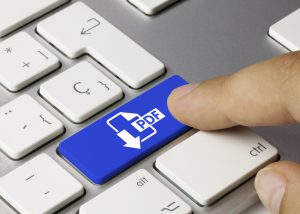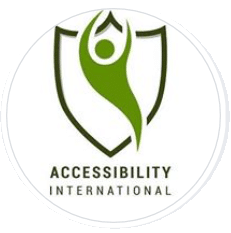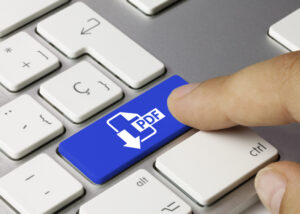Accessibility lawsuits are a serious risk for banks

Banks and financial companies are at risk for ADA accessibility lawsuits. Making a website and app ADA compliant takes significant time and effort, especially to keep up with the thousands of PDF statements customers request online daily. With nearly 25% of the population having a disability, digital accessibility can impact a quarter of your customers. ADA compliance has become a hot button issue and accessibility lawsuits have continued to rise over the last few years. ADA compliant PDFs on demand seem an unreachable goal.
ADA-compliance accessibility lawsuits in banking and finance:
Customers who can’t access their financial information become frustrated and can file an ADA lawsuit when financial institutions fail to meet their needs. There have been a number of significant lawsuits filed and settled. Most of these center around websites, mobile apps, desktop apps, and documents that weren’t made accessible to clients. Even major banking and finance companies fall short. Here is a list of some of the more significant cases:
2014 – H&R Block sued for an inaccessible website and apps, and paid $145,000 in settlement
2017 – Independent Community Bankers of America (ICBA) settled with an advocacy group called AccessNow, encouraging all ICBA members to implement digital accessibility for their websites, apps, and documents.
2018 – TD Ameritrade sued for an inaccessible website and trading software
2019 – Morgan Stanley sued for an inaccessible website, apps, and PDFs
2020 – Morgan Stanley sued a second time for an inaccessible website
Study finds 58% of banks fail WCAG
The Bureau of Internet Accessibility did a study on the accessibility of banking websites and discovered they had an average of 58% failure rate. This failure rate is based on their benchmarks for Web Content Accessibility Guidelines (WCAG) compliance. That means 58% of banks aren’t meeting their customers’ needs and are at risk for digital accessibility lawsuits. You can see the results for the banks they tested in the article they published.
Accessibility and ADA compliance includes PDFs
The need for accessibility and ADA compliance includes PDF statements that customers request, not just web pages. Each element of the PDF document must have a digital tag that identifies the content for people using assistive technology like screen readers. This includes images, headings, and links, but also any tables, charts, graphs. Additionally, the reading order of the elements must be correct. But how can banks keep up with the need for accessible, ADA compliant PDF statements on-demand from hundreds or thousands of customers?
What if accessible PDFs could be provided, on-demand?
 What if it was simple? What if accessible statements were something customers could have, instantly, as part of the bank’s normal workflow of statement generation? What if every single PDF statement could be made accessible upon request, on-demand, with one click?
What if it was simple? What if accessible statements were something customers could have, instantly, as part of the bank’s normal workflow of statement generation? What if every single PDF statement could be made accessible upon request, on-demand, with one click?
Equidox batch processing makes it possible. Our data scientists have developed a method for accessibility batch processing that instantly adds the necessary digital tags to PDF documents. The PDF statement will pass accessibility checkers. And it will actually be usable and functional for the customers using assistive technology.
Equidox isn’t the only automated accessibility option on the market. But, unlike the others, Equidox is actually compliant, not just a “quick-fix”. Other automated accessibility solutions use generic overlays that can pass accessibility checkers but aren’t actually ADA compliant or accessible to people using assistive technology. Not Equidox – our PDFs are, in fact, ADA compliant.
How Equidox Batch Processing works
Equidox first collects data about your statements, in order to identify the elements in your PDF financial statements that will need to be digitally tagged. Next, document samples are uploaded into the Equidox machine learning engine. The machine learning engine then analyzes them to identify elements such as headings, logos, tables, and links. The Equidox development team will take that analysis, define the elements, and build a digital template from those computer definitions.
Using this pre-defined digital template, Equidox software will run within your existing workflow on a secure server. From that server, it applies the necessary tags to your PDF statements. Then when your customer requests their statement, an accessible PDF is automatically generated, on-demand. The process is all behind the scenes.
You can watch the video for our process here: Equidox Batch Processing Automation.
Want to learn how you can provide ADA compliant PDFs to your customers, on-demand, and avoid accessibility litigation? Contact us to set up a free evaluation.




